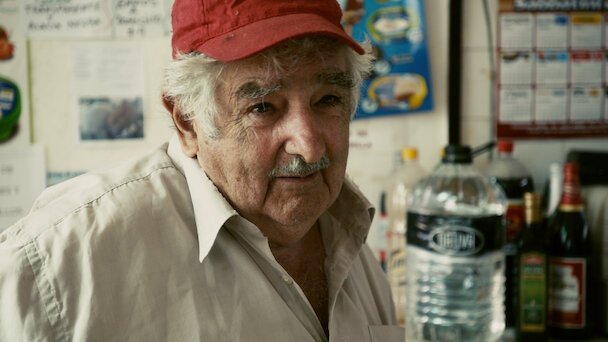José "Pepe" Mujica, the former president of Uruguay, who passed away today, was a figure whose life inspired fascination far beyond his small South American country. Known for his austere lifestyle, eloquent speeches, and rebellious past, Mujica captured the imagination of filmmakers, documentarians, and screenwriters alike.
His life—marked by revolutionary fervor, years of imprisonment, political triumph, and an unshakable commitment to simplicity—reads like a compelling screenplay. It’s no surprise that Mujica has become both subject and symbol in modern cinema.
Born in 1935, Mujica’s journey—from guerrilla fighter with the Tupamaros in the 1960s and '70s to political prisoner under a brutal military dictatorship, and finally to president of Uruguay (2010–2015)—offers a narrative rich in drama and human resilience. During his presidency, he became internationally known as "the world's poorest president," a title reflecting his decision to donate most of his salary to charity and live in a modest farmhouse rather than the presidential palace.
This life trajectory, filled with struggle, transformation, integrity, and reluctant heroism, has drawn filmmakers to his story, most notably in El Pepe, Una vida suprema (2018). Directed by the acclaimed Serbian filmmaker Emir Kusturica, the documentary combines interviews, archival footage, and poetic narration to paint an intimate portrait of Mujica. It juxtaposes his philosophical musings on power, freedom, and consumerism with the serene simplicity of his rural life after leaving the presidency. El Pepe premiered at the Venice Film Festival in 2018, receiving international attention.
That same year, A Twelve-Year Night / La noche de 12 años (2018), directed by Uruguayan filmmaker Álvaro Brechner, premiered at the Venice Film Festival in the Horizons competition. This dramatized film, while not a biopic of Mujica, recounts the 12 years he and fellow Tupamaros Eleuterio Fernández Huidobro and Mauricio Rosencof spent in solitary confinement during Uruguay’s dictatorship. Actor Antonio de la Torre portrays Mujica in a harrowing performance that conveys the immense psychological toll of isolation. Based on real testimonies, the film offers a stark contrast to the peaceful image of Mujica in his later years, instead exploring the resilience of the man behind the public figure.
Another lesser-known but poignant film is Pepe Mujica – Lessons from the Flowerbed (2014) by German director Heidi Specogna. This documentary, which focuses on Mujica’s philosophy of life and his presidency, uses his modest rural lifestyle and his love of gardening as metaphors for growth and patience. Specogna’s lyrical approach offers an up-close perspective on Mujica's personal and political reflections.
Years earlier, in Tupamaros (1997), Specogna (along with Rainer Hoffmann) explored the history of the Tupamaro movement, profiling the former guerrilla group to which Mujica belonged. The documentary blends archival materials and interviews with Mujica and other members, examining the ideological roots of the Tupamaros and their eventual transformation into political figures in Uruguay’s democratic process.
In Frágil Equilibrio (2016), directed by Guillermo García López, Mujica's speeches on consumerism and social inequality form the moral backbone of the film. While not solely focused on him, the documentary juxtaposes his reflections with global stories of hardship and resilience, highlighting his status as a moral voice in the modern world. The film won the Goya Award for Best Documentary, further cementing Mujica’s role as a global conscience.
Another 2016 documentary, In the Same Boat, directed by Rudy Gnutti, explores the future of the global economy, including interviews with thinkers and politicians like Mujica. He appears as a visionary voice, challenging economic orthodoxy with humanist principles.
In a lighter vein, Mujica made a cameo as himself in the 2017 Uruguayan political satire Get the Weed / Misión No Oficial, directed by Denny Brechner, Alfonso Guerrero, and Marcos Hecht. The film, which humorously tackles Uruguay’s pioneering marijuana legalization, blends real political figures with fictional characters, showing Mujica’s willingness to engage in cultural conversations with humor and authenticity.
Pepe Mujica’s appeal to filmmakers is undeniable. His life story, grounded in struggle and sustained by an unshakeable moral compass, offers fertile ground for cinematic exploration. Whether through documentary, dramatized film, or symbolic reference, Mujica remains a lens through which artists examine the nature of power, sacrifice, and dignity.





